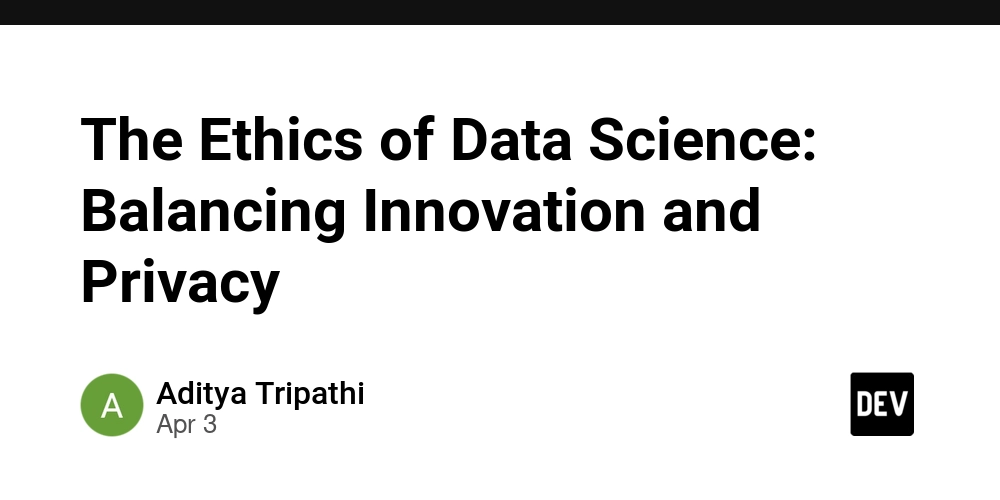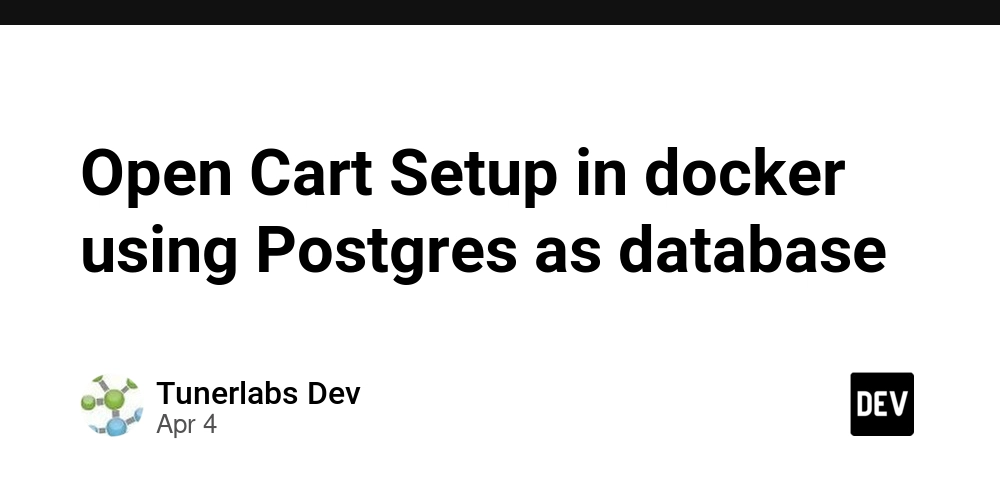The Ethics of Data Science: Balancing Innovation and Privacy
In today’s digital era, data science has emerged as a transformative force, revolutionizing industries across the globe. From healthcare and finance to e-commerce and governance, data-driven decision-making is driving unprecedented growth and efficiency. However, with great power comes great responsibility. The ethical concerns surrounding data privacy, security, and misuse are becoming more critical than ever. The challenge lies in striking a balance between fostering innovation and protecting individual privacy. The Indian Context: A Growing Data Science Landscape India, with its vast digital ecosystem, is witnessing an explosion in data generation. The country has over 1.2 billion mobile users and more than 850 million internet users, making it one of the largest data markets in the world. With rapid digital transformation, businesses, educational institutions, and even the government are leveraging data science to optimize operations, enhance customer experience, and drive economic growth. Chennai, known as the ‘Detroit of India,’ is not only a hub for automobile industries but is also emerging as a significant center for data science education and research. The city is home to numerous IT firms, research institutes, and startups that actively integrate data-driven solutions into their operations. For individuals looking to establish a strong foundation in this field, the Best Data Science Classes in Chennai provide comprehensive courses that equip learners with the skills required to navigate the complex ethical landscape of data science. The Ethical Challenges in Data Science As data science continues to grow, so do the ethical dilemmas associated with it. Some of the key ethical concerns include: Data Privacy and Consent One of the biggest ethical issues in data science is ensuring user privacy. Many companies collect vast amounts of personal data, often without the user’s explicit consent. In India, concerns over privacy have heightened, especially after incidents like the Aadhaar data leak. While the Personal Data Protection Bill aims to regulate data collection and usage, challenges remain in ensuring transparency and accountability. Bias and Discrimination in Algorithms Data science models are only as good as the data they are trained on. If the data contains biases—whether racial, gender-based, or socio-economic—then the models will reinforce and perpetuate these biases. In India, where societal inequalities exist, biased algorithms can exacerbate discrimination in areas such as hiring, lending, and law enforcement. Surveillance and Misuse of Data Governments and corporations worldwide use data science for surveillance, raising concerns over mass data collection and tracking. In India, the use of facial recognition systems by law enforcement agencies has sparked debates about privacy rights. While surveillance can enhance security, unchecked data collection can lead to misuse and infringement on civil liberties. Data Security and Breaches With increasing cyber threats, data security is another major ethical concern. Data breaches have affected millions of users, exposing sensitive information such as banking details, health records, and personal identification numbers. Organizations must implement robust cybersecurity measures to safeguard user data. Transparency and Accountability Many AI and machine learning models operate as ‘black boxes,’ meaning their decision-making processes are opaque. This lack of transparency can create ethical dilemmas, especially in sectors like healthcare and finance, where algorithmic decisions have significant consequences. Ensuring explainability in AI models is crucial for building trust. Balancing Innovation and Privacy: Ethical Solutions While the ethical concerns in data science are significant, they are not insurmountable. Here are some ways to balance innovation and privacy: Adopting Ethical Data Collection Practices Companies and organizations must ensure that data collection is based on informed consent. Users should be made aware of how their data will be used and given the option to opt out if they choose. Transparent data policies can help build trust between organizations and users. Implementing Fair and Unbiased Algorithms To mitigate biases in AI models, organizations should use diverse and representative datasets. Regular audits of AI models can help identify and correct biases. Additionally, involving ethicists and domain experts in the AI development process can ensure that ethical considerations are prioritized. Strengthening Data Protection Laws Regulations play a crucial role in protecting data privacy. The Indian government’s proposed Digital Personal Data Protection Act aims to provide a framework for data privacy, similar to the General Data Protection Regulation (GDPR) in Europe. Stronger enforcement of these laws will ensure accountability among organizations handling user data. Enhancing Cybersecu

In today’s digital era, data science has emerged as a transformative force, revolutionizing industries across the globe. From healthcare and finance to e-commerce and governance, data-driven decision-making is driving unprecedented growth and efficiency. However, with great power comes great responsibility. The ethical concerns surrounding data privacy, security, and misuse are becoming more critical than ever. The challenge lies in striking a balance between fostering innovation and protecting individual privacy.
The Indian Context: A Growing Data Science Landscape
India, with its vast digital ecosystem, is witnessing an explosion in data generation. The country has over 1.2 billion mobile users and more than 850 million internet users, making it one of the largest data markets in the world. With rapid digital transformation, businesses, educational institutions, and even the government are leveraging data science to optimize operations, enhance customer experience, and drive economic growth.
Chennai, known as the ‘Detroit of India,’ is not only a hub for automobile industries but is also emerging as a significant center for data science education and research. The city is home to numerous IT firms, research institutes, and startups that actively integrate data-driven solutions into their operations. For individuals looking to establish a strong foundation in this field, the Best Data Science Classes in Chennai provide comprehensive courses that equip learners with the skills required to navigate the complex ethical landscape of data science.
The Ethical Challenges in Data Science
As data science continues to grow, so do the ethical dilemmas associated with it. Some of the key ethical concerns include:
- Data Privacy and Consent
One of the biggest ethical issues in data science is ensuring user privacy. Many companies collect vast amounts of personal data, often without the user’s explicit consent. In India, concerns over privacy have heightened, especially after incidents like the Aadhaar data leak. While the Personal Data Protection Bill aims to regulate data collection and usage, challenges remain in ensuring transparency and accountability.
- Bias and Discrimination in Algorithms
Data science models are only as good as the data they are trained on. If the data contains biases—whether racial, gender-based, or socio-economic—then the models will reinforce and perpetuate these biases. In India, where societal inequalities exist, biased algorithms can exacerbate discrimination in areas such as hiring, lending, and law enforcement.
- Surveillance and Misuse of Data
Governments and corporations worldwide use data science for surveillance, raising concerns over mass data collection and tracking. In India, the use of facial recognition systems by law enforcement agencies has sparked debates about privacy rights. While surveillance can enhance security, unchecked data collection can lead to misuse and infringement on civil liberties.
- Data Security and Breaches
With increasing cyber threats, data security is another major ethical concern. Data breaches have affected millions of users, exposing sensitive information such as banking details, health records, and personal identification numbers. Organizations must implement robust cybersecurity measures to safeguard user data.
- Transparency and Accountability
Many AI and machine learning models operate as ‘black boxes,’ meaning their decision-making processes are opaque. This lack of transparency can create ethical dilemmas, especially in sectors like healthcare and finance, where algorithmic decisions have significant consequences. Ensuring explainability in AI models is crucial for building trust.
Balancing Innovation and Privacy: Ethical Solutions
While the ethical concerns in data science are significant, they are not insurmountable. Here are some ways to balance innovation and privacy:
- Adopting Ethical Data Collection Practices
Companies and organizations must ensure that data collection is based on informed consent. Users should be made aware of how their data will be used and given the option to opt out if they choose. Transparent data policies can help build trust between organizations and users.
- Implementing Fair and Unbiased Algorithms
To mitigate biases in AI models, organizations should use diverse and representative datasets. Regular audits of AI models can help identify and correct biases. Additionally, involving ethicists and domain experts in the AI development process can ensure that ethical considerations are prioritized.
- Strengthening Data Protection Laws
Regulations play a crucial role in protecting data privacy. The Indian government’s proposed Digital Personal Data Protection Act aims to provide a framework for data privacy, similar to the General Data Protection Regulation (GDPR) in Europe. Stronger enforcement of these laws will ensure accountability among organizations handling user data.
- Enhancing Cybersecurity Measures
Investing in cybersecurity infrastructure is essential to prevent data breaches. Organizations should implement encryption, multi-factor authentication, and regular security audits to safeguard sensitive data. Training employees on cybersecurity best practices can also reduce risks.
- Promoting Ethical AI Development
AI models should be designed with explainability and transparency in mind. Open-source AI development, where models are subject to peer review, can help improve accountability. Ethical AI guidelines should be integrated into the curriculum of Best Data Science Classes in Chennai, ensuring that future data scientists develop responsible AI solutions.
- Encouraging Data Literacy
Educating individuals about data privacy and ethics can empower them to make informed decisions about sharing personal information. Schools, universities, and online platforms should incorporate data literacy programs to raise awareness.
Conclusion
Data science has immense potential to drive innovation and societal progress, but ethical concerns must be addressed to ensure that this progress does not come at the cost of privacy and fairness. India’s rapidly growing digital ecosystem presents both opportunities and challenges in the ethical use of data. By implementing transparent data policies, unbiased algorithms, stringent cybersecurity measures, and robust data protection laws, we can create a responsible data-driven future.
For aspiring data scientists, understanding the ethical implications of data science is crucial. By enrolling in the Best Data Science Classes in Chennai, individuals can gain the knowledge and skills needed to navigate the complexities of ethical AI and data science, ensuring that innovation and privacy coexist harmoniously.











































































